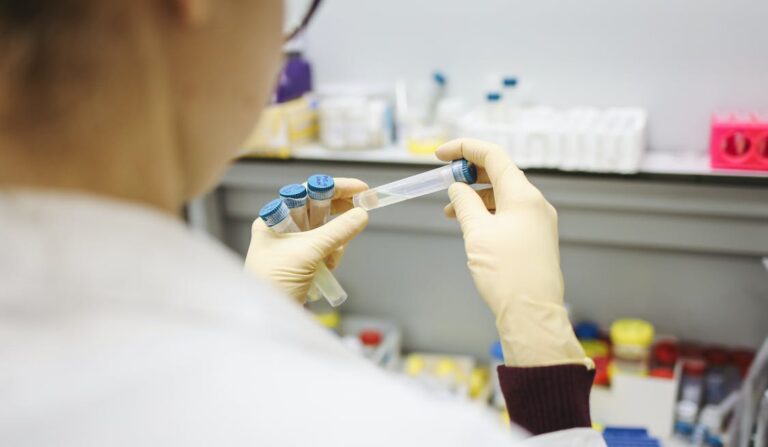
If you’ve opened a newspaper, turned on the TV or spoken to any other human being in 2020, the chances are you’ll be aware we’re currently in the midst of a global pandemic, thanks to the coronavirus. Science has seen other strands of coronavirus in the past; sadly none have resulted in a death toll anywhere close to that caused by Covid-19.
The amazing news is, a vaccine is finally here and has just started being rolled out to the elderly and the most vulnerable in the U.K.
The main symptoms linked with Covid-19 include a persistent cough, a fever, fatigue, loss of taste and smell and in very serious cases, the virus attacks the respiratory system, which can be fatal.
Numerous different tests are being designed and rolled out in a bid to control the virus and allow countries around the world to restore normality and order to their infrastructure. Two such tests are antibody and antigen tests, the purpose of which can arouse confusion in the non-science buff layman!
Below, we break down the difference between the two tests and give some context surrounding their usage and what they mean in terms of Covid-19.
Antibodies and antigens – what’s the difference between the two?
‘Anti’ this and ‘anti’ that! Scientific jargon can become a bit discombobulating, especially when it’s ever-present in the news we read. For some clarity, let’s take a look at what the difference is between an antibody and an antigen.
Antigens are large protein molecules that identify cells and induce an immune response. They come in the form of bacteria, chemicals and most importantly in this context, viruses, like Covid-19. An antigen test will look for a nucleocapsid protein, the most prominent protein that makes up coronavirus.
Antibody tests: the lowdown
The aim of an antibody test is to:
- To see if a person has had a virus, such as Covid-19
- To see if a person has developed immunity to the virus
- Antibody testing requires a blood sample, which is usually performed by taking a finger prick.
The terminology associated with Covid-19 can be confusing as ‘PCR testing’ and ‘antigen’ testing are often used interchangeably when describing a test that tells you if you’re currently infected. This is made even more problematic by the fact that antigen and PCR test actually have some differences.
Antigen tests look for proteins that sit on the surface of the virus, whereas PCR tests seek out the genetic material that provides instructions for the virus to create those proteins. As antigen tests become more commonplace, this distinction has become more important than before.
In the case of Covid-19, it’s been discovered that antibodies aren’t generally detectable until two weeks after symptoms manifest. Whilst we still don’t know how long antibodies for Covid-19 stick around for, in most viral infections, particular antibodies can be identified for months and even years following infection.
Generally speaking, antibodies mean good news; if a person is found to have developed antibodies (and apparent immunity), they can donate plasma to people who are infected. What’s more, antibody testing allows scientists to get a more comprehensive understanding of a pandemic’s impact – it can help determine where the virus has spread, the fatality rate and if it’s safe to ease lockdown periods in specific locations.
To make matters more complicated (as if they weren’t enough already!) a negative result doesn’t always mean you’ve not been infected with a virus like Covid-19. It may be that you haven’t built up the antibodies yet because you have an active infection.
The issue of false negative results also presents a problem and s reported to be as low as 2% and as high as 37%. It’s believed that this might not be down to the test itself, but down to lab contamination or the way the test is performed by the lab.
Antigen tests are effective alongside antibody tests, to rule out whether you are indeed infected and need to self-isolate to protect others. In an ideal world, everyone would have fast access to both these tests, to give the most accurate result.
This brings us to antigen testing.
Antigen tests: the lowdown
The aim of an antigen test is to:
- See if a person is infected with a virus, such as Covid-19
- Test after someone has been infected to check if the virus has left their system
- Test those who are asymptomatic to check if they are carrying the virus, as they could pass it on unknowingly
- Antigen tests are carried out by taking a nose and/or a throat swab.
Antigen tests are thought to be most effective at yielding an accurate result, if performed as soon as possible after a person shows symptoms of a virus or disease – 1-5 days is the optimum window according to research.
Beyond this time, it can be a challenge to detect a virus like Covid-19, because the body starts to cleanse itself of the virus or sends it further down the respiratory tract, in which case a different sampling method would be necessary.
Unfortunately, the current antigen tests have a sensitivity of 70%, which means out of every 100 people, 30 will have been incorrectly identified as testing negative.
When we eventually come out of lockdown and vaccine is slowly rolled out to the public in priority order, antigen tests will play a crucial part in reducing transmission. Environments such as the workplace in particular, will benefit from fast turnaround antigen testing which is the next vital step if the economy is to make a slow but robust recovery.
It’s hoped that fast testing will give employees and customers more confidence to leave their homes and resume some semblance of day-to-day life in this way.
Antigens, antibodies and Covid-19: How’s the future looking?
We are living in times of constant flux. The medical landscape is forever testing and trying different things to achieve the most viable type of testing for the public to have access to.
The types of antibody and antigen tests that are on offer continue to change as we learn more about the virus. Several companies are in the process of developing rapid test technologies and different means of sampling than those that are commonplace at the moment (nose and throat).
It’s hoped that salivary antigen tests will also be available and offer a less invasive, operator-dependent method of testing.



Thanks for clarifying the differences between the two tests. Im looking to get one done, since Ive not been feeling great. My chest has been feeling heavy and Ive been a bit achy.
Recently we’ve been put into national lockdown till mid-Feb. Getting more knowledge on these 2 tests is really quite important for me since I still have to go to work. Thanks for the great, informative article.
Id like to have an antibody test since I’m certain I had covid previously. I isolated by myself to incase I did have it.